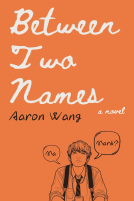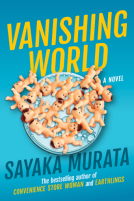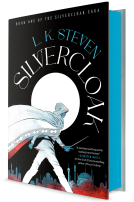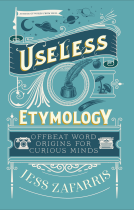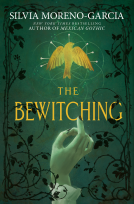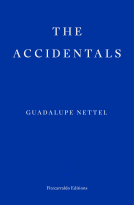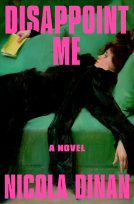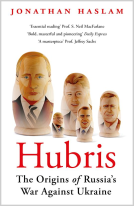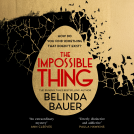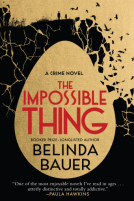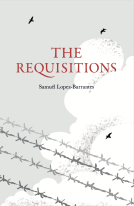
Mild Vertigo
by Mieko Kanai, translated by Polly Barton
This title was previously available on NetGalley and is now archived.
Send NetGalley books directly to your Kindle or Kindle app
1
To read on a Kindle or Kindle app, please add kindle@netgalley.com as an approved email address to receive files in your Amazon account. Click here for step-by-step instructions.
2
Also find your Kindle email address within your Amazon account, and enter it here.
Pub Date Jun 21 2023 | Archive Date Jun 30 2023
Talking about this book? Use #MildVertigo #NetGalley. More hashtag tips!
Description
Housewife Natsumi leads a small, unremarkable life in a modern Tokyo apartment with her husband and two sons: she does the laundry, goes on trips to the supermarket, exchanges gossip with neighbours. Tracing the conversations and interactions she has with her family and friends as they blend seamlessly into her internal monologue, Mild Vertigo explores the dizzying inability to locate oneself in the endless stream of minutiae that make up a life confined to the home, where both everything and nothing happens. With shades of Clarice Lispector, Mavis Gallant and Lucy Ellman, this late-period novel by the esteemed novelist, essayist, and film and literary critic Mieko Kanai – whose often dark and cynical work occupies something of a cult place within the Japanese canon – is a disconcerting and astute portrait of life in late-stage capitalist society.
For fans of: Ducks, Newburyport by Lucy Ellmann, Memory Police by Yōko Ogawa and Pond by Claire-Louise Bennett
Available Editions
| EDITION | Paperback |
| ISBN | 9781804270387 |
| PRICE | £12.99 (GBP) |
| PAGES | 192 |
Available on NetGalley
Featured Reviews
 Reviewer 876149
Reviewer 876149
Acclaimed poet, critic and novelist Mieko Kanai’s Mild Vertigo is less overtly disturbing or elliptical as the stories of hers I’ve read but it’s still striking and innovative. Originally published in 1997, it focuses on the experiences of a housewife Natsumi who lives with her husband and two small sons in a Tokyo apartment building. Kanai’s depiction of Natsumi is structured through snapshots of her day-to-day activities and interactions: inner monologues mingle with scenes of chance encounters with neighbours, stray thoughts or casual conversations with friends and family. It’s a deceptively simple, sometimes seemingly artless piece; outwardly random and free flowing but actually admirably intricate and painstakingly constructed. As with other works by Kanai, it developed gradually out of pieces published elsewhere yet always destined to be stitched together to form a single narrative.
In many ways Natsumi might seem an unremarkable character, socially slightly conservative, sometimes diffident, sometimes rebellious, her time’s centred on her family but Kanai’s portrait of her makes her incredibly compelling. Kanai’s approach is often very visual and there are numerous episodes that have a near-cinematic quality, as if they’re unfolding in real time. These elements, plus the ways in which Kanai so vividly captures the minutiae of Natsumi’s existence, and an emphasis on time and space, reminded me of work by film-makers like Chantal Akerman - sans her more sensational plot twists. Like Akerman, Kanai’s interested in gender, the domestic, the machinery and practices of femininity, and here she includes, as she often does, detailed accounts of clothing, fashion, and food, all essential to the fabric of Natsumi’s world - it’s no surprise Jane Austen’s one of Kanai’s favourite novelists. Yet Kanai also manages to makes Natsumi’s story immediate, vivid and fresh. Her notoriously long, dense sentences drew me in, everything combining to create the impression of a direct link to Natsumi’s consciousness: her anxieties, her desires and preoccupations. There’s a reflectiveness of the kind I associate with Yuko Tsushima’s work but it's interspersed with some wonderful flashes of unexpectedly biting, understated humour.
Through Natsumi, Kanai seems intent on exploring particular moments of being, repeatedly returning to episodes in which Natsumi’s confronted by a sudden awareness of her own existence, sparking feelings of profound disconnection or connection. The sensations set off by an image or a sound, her apartment building’s community glimpsed in fragments of shared stories; its social hierarchies and collective culture founded on uwasa (gossip and rumour) that both binds and alienates. All those near-indefinable encounters that can suddenly produce a kind of breakthrough, and for Natsumi an accompanying shift in awareness that elicits a visceral, bodily response.
I also really relished Kanai’s meticulous representation of the kinds of taken-for-granted knowledge that women like Natsumi possess, which combine to form a vivid picture of the cultural landscapes she inhabits - the exact layout of the local grocery shop that she visits almost daily, so familiar she can recite its contents from memory. So exact a recollection that it recalled another of Kanai’s favourite writers Roland Barthes and his dissection of overlooked everyday objects and images. Although this isn’t a self-consciously academic piece, Kanai has talked about how her writing is concerned as much with writing as anything else, and as if to hint at the artificiality of her text she makes an early cameo appearance as an unnamed writer from Mejiro, where she’s lived for many years, a place she often returns to in her fiction. Later Natsumi reads this writer’s essays on photography, articles where Kanai discusses the nature and impact of Tokyo photographer Kineo Kuwabara’s style and subject matter and, in doing so, indirectly comments on what she might be trying to achieve with her portrait of Natsumi. A portrait I found so totally absorbing, I was disappointed when it ended. Translated by Polly Barton.
I am so glad that in recent years we've had the chance and privilege of reading literature from Japan. This is a remarkable story about an "unremarkable" character named Natsumi who lives in Tokyo with her husband and two sons and lives her ordinary, middle class life where "nothing" happens, but we know that's not the case. Thanks to fitzcarraldo for giving me the opportunity to read the book. I enjoyed it immensely.
Mild Vertigo is a little jewel of existential, stream-of-consciousness, domestic dread filling monologue. Long sentences through out of course.
I found myself racing through pages of this book, but not constantly, very much a mood read (that I enjoyed).
The husband? I would dread any mention of him.
Short but filled to the brim, highlighting the loneliness of a lost middle class housewife constrained to a ‘meaningless’ routine and expectations.
Mild Vertigo
by Mieko Kanai
Translated from the Japanese by Polly Barton
I have been meaning to read something by this author for quite a while, so when I got the opportunity to review her latest work I was excited. I knew going in that her writing has a rambling, tangential quality where sentences can run to several pages. That worried me a little, but forewarned is forearmed.
This is a collection of eight short stories which Mieko Kanai says were previously published in different journals in order to be collected as a novel. It was fun to find the connections and small details between them, but the main protagonist is the same throughout, Natsumi.
It took me a few beats to become accustomed to the narrative which is made up of a blend of stream of consciousness self-talk, reported dialogue and seemingly inconsequential details. The density of the prose requires the reader to slow down and smell the coffee. There's a circular structure to most of the stories which reminds me of the 1970s Ronnie Corbett style meandering monologues that used to crack my parents up. The punchline was a triumph of narrative assembly, and that is what also makes this collection so masterful.
I love how each story brought me from side-eyeing the details of Japanese real estate, supermarket aisle layout, housework routines, Japanese event protocols, birds, stray cats, to full emersion in Japanese life as we live in Natsumi's head while she navigates Tokyo transport, parks, food, friends, neighbours, marriage and children, menopause and patriarchy. It's always such a joy to become familiar, even somewhat intimate with an entirely different culture, and especially when you realise that the woes and annoyances of a woman, particularly a housewife is essentially the same the world over.
I love Natsumi. I already feel a bit of grief over leaving her behind. I really need to delve into this author's backlist, because that's how I cured my hangover from "Olive Kitteridge" and that might be the last time a character had such a profound impact on me.
Needless to say, highly recommend.
Publication date: 21st June 2023
With thanks to #netgalley and #fitzcarraldoeditions for the ARC
Mild Vertigo is a melodic blend of narrative and inner monologue, reminiscent of Ducks, Newburyport at times. Balanced and thoughtful storytelling, reflecting the seemingly shallow day to day troubles besetting a Japanese housewife, Mild Vertigo explores fascinating aspects of capitalist society and privilege in modern day life.
The translation is impeccable and the prose flows beautifully. I was captivated by the style of this novel and, though at times the extending listing of items and exceptionally detailed descriptions threatened to bore, the writer has an uncanny knack of cutting things off before the attention span is lost and return to the fascinating story that is unravelling.
I absolutely loved this book and will be looking forward to picking up a physical copy to add to my collection of incredible fiction from Fitzcarraldo editions.
 Benjamin S, Reviewer
Benjamin S, Reviewer
Originally published in 1997, Mild Vertigo is the latest novel to be introduced to English readers by the ever-reliable Fitzcarraldo Press. The wonderfully fluent translation is by Polly Barton. The author, Meiko Kanai, has had a long career and has been translated into English before, though I'm not familiar with any of her previous work.
Mild Vertigo is about Matsumi, an ordinary housewife going about her life in a Tokyo apartment. We follow her inner monologue as she goes about her day and interacts with her family, neighbours and friends. Not very much happens, but in Meiko Kanai's hands the minutiae of Matsumi's life is absolutely compelling.
The novel is almost stream of consciousness, with long, free flowing sentences in which follow Matsumi's thoughts blur together with the conversations she has. I often find that stream of consciousness unenjoyable to read and such narrative devices to be intrusive. Neither is the case. The book is very readable; the sentences are long but not dense and it helps that there are paragraphs breaks. I quickly got used to the style and the rhythm, to the point that I stopped noticing it.
A word of praise too for Polly Barton. I can't speak to the accuracy of the translation but in every other way I thought it was superb. It can't have been easy to translate such long, complicated sentences and to end up with such clear, natural prose is remarkable. But for the attribution you wouldn't know it's a translated work.
The only criticism I have of the novel relates to a longish section that takes the form of a critical essay on photography by an unnamed writer (who I assumed to be standing in for Meiko Kanai). I found the change in tone jarring and the section felt out of place. It isn't without interest and functions as a comment on what the author was trying to achieve with the novel. But it would have been more in keeping with the rest of the novel, and more interesting, to have Matsumi's commentary on the essay rather than presenting it straight.
Overall this is highly recommended. A book so plotless being so compelling and readable is something of a magic trick.
Readers who liked this book also liked:
Publishers Lunch
General Fiction (Adult), Nonfiction (Adult), Teens & YA
Samuél Lopez-Barrantes
General Fiction (Adult), Historical Fiction, Literary Fiction

